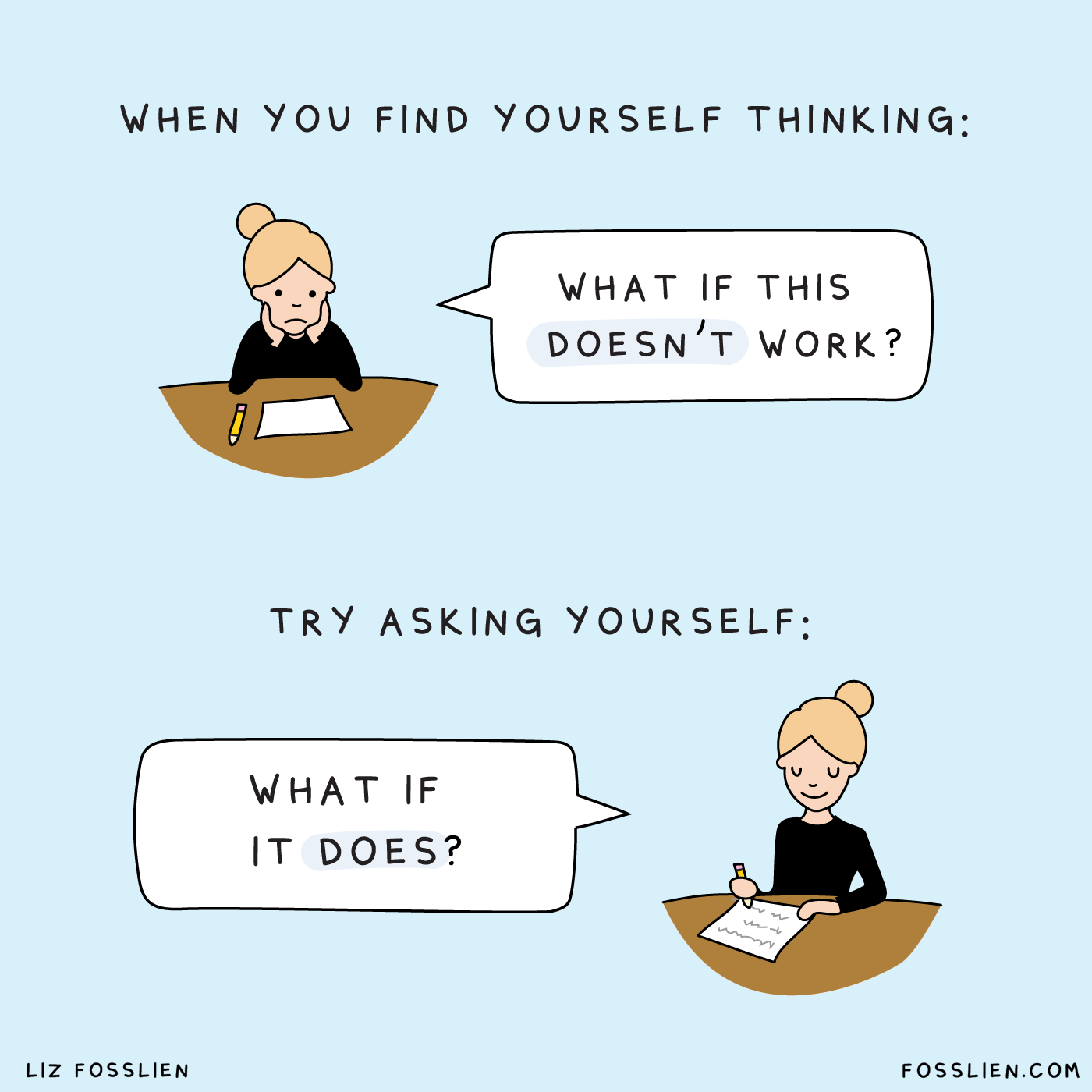Surviving in the Era of Negative Thinking
In recent years, we have found ourselves navigating the era of extremes—swinging between intensely negative and relentlessly positive outlooks. On one side, we are overwhelmed by a constant stream of distressing news, business failures, and real-life challenges. On the other, our lives are flooded with curated images of success, glowing selfies, and uplifting quotes (I must admit I’m personally a big fan of the last one 😉).
Some researchers warn of what’s been called the "tyranny of positive thinking". This refers to the expectation—or even demand—for people to always exude positivity, often at the expense of acknowledging or processing negative emotions. The pressure to maintain a perpetual optimism can lead to stress, internal conflict, and a suppressed ability to confront genuine feelings. In the long run, this forced positivity can hinder emotional authenticity and hinder personal growth.
While there are certainly times when positive thinking can do more harm than good, I remain a firm believer in its power to improve our lives—when used thoughtfully and balanced with a healthy dose of emotional honesty.
is defensive pessimism a bad thing?
With a term like "pessimism" at its core, it’s easy to assume defensive pessimism is all about gloomy predictions. But take a closer look, and you’ll find it’s more than just dwelling on what could go wrong—it’s a strategic mindset that can be surprisingly useful.
Defensive pessimism describes individuals who channel their anxiety or negative feelings into proactive planning. Instead of being overwhelmed by worry, they envision worst-case scenarios in vivid detail and prepare solutions to tackle them. This means brainstorming alternatives, considering potential obstacles, and taking preventative steps to minimize risks. You may tap into this approach unconsciously —like when you're nervous about forgetting an important report, so you pack it the night before or set reminders to avoid any last-minute chaos.
In the context of teamwork, defensive pessimism can be also beneficial. Team members who use this mindset might anticipate potential challenges in a project, identify weak spots in the plan, and proactively propose solutions. This not only enhances individual preparedness but also boosts the team's ability to adapt to unforeseen issues. Far from being paralyzing, this kind of intentional planning turns anxiety into a motivator.
Researchers have found that defensive pessimists can use their caution and concerns as fuel for better performance. By preparing thoroughly and staying ahead of potential pitfalls, they turn what might feel like a liability into a valuable asset—both in work and in team dynamics, ensuring smoother collaboration and minimizing disruptions.
stay afloat of negative news
There is no shortage of negative news in our daily consumption, and we all know that overeating has never been anything good. The same applies to the constant intake of negativity—whether through social media or workplace conversations. It’s crucial to set boundaries to understand how negative thinking might impact our personal and professional lives. While it’s important to be ready to listen, act, and help when someone truly needs support, engaging with every complaint or negative post on Facebook, Instagram, or other platforms isn't productive or healthy.
Prevent your mind from staying in alert mode all the time. In the workplace, negativity can easily spread among team members, affecting morale and productivity. If you use social media, treat negative posts as red flags, a kind of warning. If you catch yourself in endless scrolling through critical comments, complaints, or negativity in your workplace chats or online—recognize how it impacts your mood, energy levels, and overall mindset. These are often reflections of someone feeling angry, disappointed, or frustrated, and they might be seeking attention or validation.
Engaging in or absorbing this negativity can cloud your judgment, weaken teamwork, and lead to burnout. Instead of shifting your focus away from tasks or objectives that are meaningful, don’t allow the emotions of anonymous individuals or toxic work conversations to derail you. As David J. Polly’s “Law of the Garbage Truck” suggests, we can protect our professional lives by choosing not to absorb the anger, resentment, or frustrations of others. In any workplace, it’s essential to avoid hostile or harmful dialogues that can damage your mental and physical health, as well as affect team collaboration and overall harmony.
practice gratitude selectively
Start counting your blessings in life—but don’t force yourself to feel grateful for everything.
In the workplace, gratitude can boost morale, increase motivation, and create a positive atmosphere within teams. However, it’s important that this gratitude is genuine—when it feels obligatory or insincere, it may create more pressure than positivity, even leading to feelings of guilt. If you find it difficult to express gratitude, don’t pressure yourself. Start small: reflect on what good happened to you on a specific workday. Maybe it was a meaningful conversation with a colleague or a small task you accomplished. These little victories can help shift your focus to the positive, allowing you to notice the good things in your daily routine.

Source: https://positivepsychology.com/neuroscience-of-gratitude/
In the professional setting, it's especially important to recognize why and how gratitude can enhance not just your emotional wellbeing, but your performance as well. The research from Sonja Lyubomirsky, a professor of psychology and expert in positive psychology, reveals that gratitude contributes to both mental and physical health. Expressing thanks at work—whether toward a colleague, manager, or team—can strengthen relationships, reduce stress, and foster a culture of collaboration. Gratitude becomes a powerful tool in creating not just a more pleasant environment, but one that’s more productive and supportive, enhancing both personal and professional growth.
treat mistakes as a good lesson to learn
Let us not fall into victimhood every time something does not follow according to our plan. There are many simple things happening every day in our life which are worth our appreciation. Mistakes are inevitable—they're simply part of life. However, how we react to them can shape our growth and resilience. Falling into a mindset of victimhood each time things don’t go as planned only intensifies feelings of helplessness.
A study by Dr. Carol Dweck, a psychologist renowned for her work on growth mindset, reveals that individuals who view mistakes as learning opportunities are more likely to improve their skills and adapt successfully. Those with a fixed mindset, on the other hand, often see failures as evidence of their shortcomings, which can lead to frustration and a lack of motivation to try again. On a practical level, everyday life is filled with small events that can shift our perspective. Perhaps a missed deadline leads to reevaluating priorities and creating better time management strategies. Or maybe a disagreement with a colleague fosters a deeper understanding of communication dynamics in your team.
The key is finding the silver lining—not in an overly positive, dismissive way, but in an empowering one. Instead of dwelling on what went wrong, ask: What can I learn from this? What could I do differently next time? Mistakes then transform from roadblocks into stepping stones, shaping us into better problem solvers and more self-aware individuals.
let go of negative pearls of wisdom
In the vast world of online discourse, I frequently come across so-called "pearls of wisdom" that are anything but “inspiring” statements like “Don’t trust people,” “Your teammates aren’t your friends,” or “Recruiters are clueless.” Really? Every time I see such negativity, I can’t help but wonder - why do people feel the need to spread this? It's like perpetuating the same tired stereotypes and generalizations over and over again.
The truth is, every situation is unique. Each organization, team, boss, or colleague brings something different to the table. Just because someone else had a negative experience and chose to vent online doesn’t mean their reality applies to yours. You might, in fact, be one of the many people who work in a healthy, supportive environment where teammates genuinely have each other’s backs and bosses are competent and fair. And let me tell you—it’s not as rare as some corners of the internet might suggest.
I firmly believe in being mindful of the kind of content we let into our lives. The negativity some people broadcast can act as an anchor, dragging us down. Instead, surround yourself with voices that inspire, motivate, and offer thoughtful perspectives. Seek out those who show compassion, optimism, and resilience—not those consumed by their inner critic or hurt egos.
A healthy, thriving work environment is not a unicorn. 🦄 It exists. Let go of the cynicism and aim to build your own experience based on possibility and hope, not on someone else’s grudges. Focus on perspectives that uplift, not ones that limit your outlook.
positive thinking is like a muscle
Say hello to our great companions—dopamine, serotonin, and yes, even our less beloved but significant friend, cortisol. When negativity creeps in, it’s essential to have strategies at hand to shift your mindset. Whether through a favourite activity or intentionally fostering a positive thought, the goal is to steer away from spiralling into negativity.
Here’s the thing - positive thinking doesn’t come easily. It is like a muscle that needs consistent exercise. It requires effort, new patterns, and a conscious shift in how you approach your thoughts. Don’t let one challenging situation dominate your mind and allow negative emotions to take root.
At the same time, it’s important to recognize that having negative thoughts is entirely normal. From an evolutionary perspective, our ancestors’ survival depended on staying alert to threats and potential dangers. The issue isn’t that we have negative thoughts—it’s that we often mistake them for absolute truth
Learning to deal with intense negative emotions is a skill worth cultivating. Dr. Daniel Siegel offers a helpful technique called “name it to tame it” which is as simple as it is effective. When negative thoughts arise, naming them—calling out the story your mind is telling—can create distance and reduce their hold on you. This awareness enables you to step back and observe without being consumed.
So, the next time negativity strikes, remember that developing positive thinking takes practice, and your brain is always ready for a workout.

Source: https://www.instagram.com/lizandmollie/
summary
Don’t get me wrong—venting our frustrations from time to time can be a healthy release, helping to lower stress and bring our concerns into the light. Bottling up emotions is rarely beneficial. However, it seems that some people use negative thinking and negative talking not as a momentary release but as a tool for gaining attention or validating their unhappiness. It’s as if they’re trying to say, “If I’m unhappy, everyone else should be too.”
The world is undeniably full of challenges, setbacks, and traumas, and my intention isn’t to dismiss these realities. Instead, it’s about learning how to coexist with life’s difficulties without being constantly overwhelmed by negativity. Practicing positive thinking, much like exercising our bodies, builds resilience over time. Think of it as training a muscle—the more you use it, the stronger and more capable your mind becomes.
In an age where negativity saturates social media and beyond, it’s all too easy to get caught in the cycle of despair. But don’t let that define your perspective. Instead, focus on fostering positivity and building mental strength. After all, your peace of mind is far more valuable than indulging in an endless stream of complaints.
So, can we survive the era of negativity while keeping our minds clear and strong? I believe we absolutely can—with intention, practice, and perspective. What about you? Do you see things through a darker lens or find the silver lining in tough situations? Is your glass half-empty or half-full? Where do you land on the spectrum?
